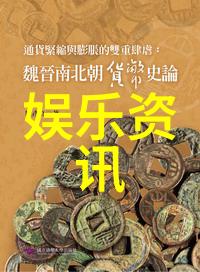香港人叫内地还是大陆一场笑语之旅
在这片由珠江与南海相隔的东方明珠下,存在着一种特殊的文化现象——香港人的称呼风格。每当他们提到“内地”或“大陆”,总带有一丝不易察觉的幽默和深意。这场笑语之旅,不仅是对语言游戏的一次探索,更是一次文化交融的心灵体验。

一、香港人为什么要这样称呼?
1.2 地理认同感

从一个地理学者的角度看,香港是一个岛屿城市,与中国大陆通过水域相隔,它们之间有着清晰的地理界限。然而,当我们提及“内地”时,这个词汇却蕴含了更深层次的情感和意义。在香港人的心中,“内地”并不仅仅指的是行政区域上的区别,而是代表了两种截然不同的生活方式和价值观念。
1.3 文化差异

每个人都有自己的世界观,每个地方都有其独特的人文气息。当谈及“大陆”,人们往往会想到那些山高天寒、古老而神秘的地方,那里藏龙卧虎,充满了历史沉淀和传统文化。而对于一些年轻的港仔来说,他们可能会觉得自己被这样的词汇笼罩在一种神秘而遥远的光芒下,就像是面对一个未知的大门,只需一脚跨过,便能进入另一个完全不同的世界。
二、不同年龄段下的称呼习惯

2.1 年轻一代:随波逐流
年轻人通常更加接近潮流,他们喜欢使用最新鲜最酷炫的词汇来表达自己。而对于年轻的一代来说,“内地”、“大陆”的用法就像是一个时代标记,让他们能够迅速判断出说话者所处的时间节点。但这种随波逐流也带来了信息量减少的问题,因为这些简洁但含义丰富的话语可能无法准确传达原有的内容。

2.2 中老年一代:怀旧与温暖
中老年一辈则更加倾向于保留过去的情感纽带,对于这些名词,他们常常背后伴随着无数回忆。那是一种穿越时空,回到那个曾经共同成长年代的情景。在他们眼中,“内地”、“大陆”的分别,并非只是政治上的划分,而是两种生活状态——一种是繁华都市,一种则是在乡土间寻觅那份温暖如初的心情。
三、语言游戏中的智慧与讽刺
3.1 诗意绘画般的人类互动
语言本身就是一种艺术形式,它可以让人们以诗意绘画般的手法来描述这个世界。在某些情况下,当你听到一个关于“內地”的讨论,你可能会发现其中隐藏着对比愉快或不愉快生活状态的小插曲。它就像是在微妙诙谐中描绘出两个世界间微妙而复杂的人际关系网,比如说,在一次聚餐上,有人突然问:“你们知道吗?我去‘內地’玩了一圈,那里的美食真不错。”这句话背后其实包含了许多故事,还包括对比港式美食与其他地方美食的一个小小赞赏,同时也是他试图展示自己游历广泛的一面。
3.2 悠悠岁月中的幽默演绎
在漫长岁月里,每个人都会遇到各种各样的困惑,但最能触动我们的是那些能够把苦乐参半的事物变成笑话的情况。当你听见一个人开玩笑地说:“我昨晚睡得好好的,是因为我已经飞到了‘內地’去了!”这种幽默并不是单纯为了娱乐,而更多的是透露了一种超脱世俗烦恼的心态,即使是在忙碌工作之后,也要找到放松自己的方法,无论这是不是真的飞到了哪里,都让我们的精神得到释放。
四、未来如何?
4.1 多元化社会背景下的新趋势
随着全球化日益加剧,我们周围出现了越来越多来自不同国家和地区的人群,这样多元化社会背景下,对于"内部"或者"外部"概念变得尤为重要。“Internal Affairs Department(内部安全局)”,即香港警务處反恐科,被誉为电影《.internal affairs》(2006)的主角之一,其名字便巧妙融合了英文缩写及中文名称,从而展现出东方西洋结合的手法,这正是今天很多香港人的日常交流方式所体现出的特点之一——既保持自身特色,又不断吸收外来的精髓,以此打造新的沟通桥梁。
结语:
Hong Kongers calling the mainland “the mainland,” it is not just a simple term, but a reflection of their unique cultural identity and their complex relationship with the rest of China.Hong Kong people's way of calling the mainland "the mainland," it is not just a simple term, but a reflection of their unique cultural identity and their complex relationship with the rest of China.
The article explores how Hong Kong people use terms such as "the mainland" to refer to the Chinese Mainland, and how these terms reflect their cultural identity and relationship with the rest of China.The article explores how Hong Kong people use terms such as "the mainland" to refer to the Chinese Mainland, and how these terms reflect their cultural identity and relationship with the rest of China.
In this journey through language games, we have seen that even in seemingly mundane conversations about food or travel plans, there are layers upon layers of meaning waiting to be uncovered.In this journey through language games, we have seen that even in seemingly mundane conversations about food or travel plans, there are layers upon layers of meaning waiting to be uncovered.
As we navigate this complex web of meanings and relationships between different regions within one country.As we navigate this complex web of meanings and relationships between different regions within one country.
We must remember that language is not just words on paper; it carries emotions, experiences, histories – all wrapped up in its intricate tapestry.Words carry emotions experiences histories — all woven into an intricate tapestry.
And when we speak them out loud – whether in jest or seriousness – they become part And when we speak them out loud — whether in jest or seriousness — they become part



